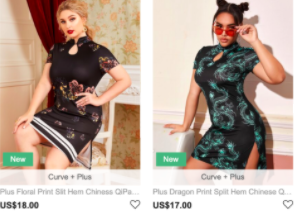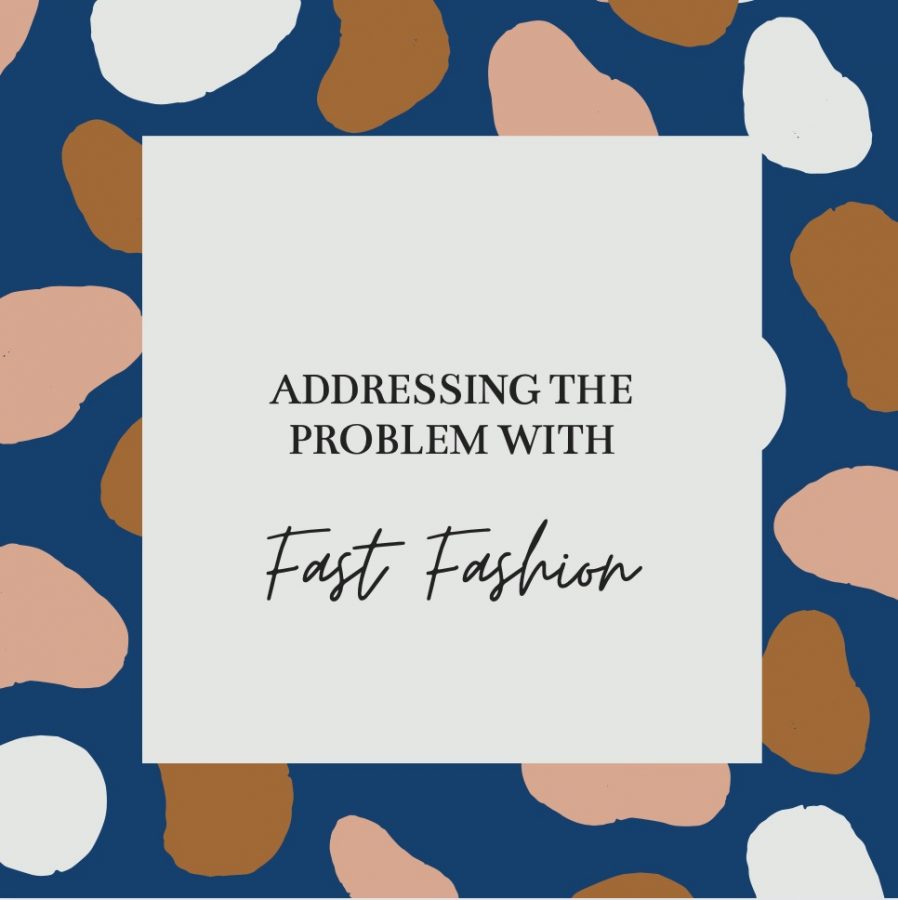Addressing the problem of global fast fashion
Four dollars for a bathing suit?! That seems too good to be true… because it is. This price resembles the idea of fast fashion, which is when a mass retailer sells very cheap clothing in order to attract consumers based on the latest trends.
Three main companies that are extremely similar to each other are Shein, Zaful, and Romwe. There are actually suspicions over whether or not they manufacture under one giant company and distribute the clothes to the mass marketing retailers. These companies actually purchase their clothes from an online store named AliExpress and sell them for a cheaper, more appealing, price.
These retailers do not have good morals when it comes to treating their workers responsibly, which is another reason why their prices are so low. Recently, it was made public that numerous fast fashion companies did not pay Bangladeshi workers, primarily young girls. This keeps the girls impoverished while the retailers keep making money. Bringing these atrocities to light will likely drop their sales.
Not only do fast fashion companies exploit the hard work of Bangladeshis, but large corporations. GAP, Kohl’s, Levi’s, and Forever 21 are just four of many large retailers that take advantage of these workers. Kylie Jenner also has been accused of underpaying these workers, forcing the public to question her true status as the world’s youngest billionaire.
Another way that these fast fashion companies are problematic, more specifically Shein, is their consistent cultural appropriation. Cultural appropriation is when one culture, typically a minority’s, is adopted by the dominant culture and embraced as their own. This can be seen as offensive to the minority cultures because in some ways cultural appropriation can be viewed as either Westernization or ethnic cleansing.
Why is this relevant? Shein, Zaful, and Romwe have done this! Asian cultures have been the most appropriated in terms of these companies. First, we will talk about Shein. Muslims have been extremely offended due to Shein selling their traditional prayer mats. This was an outrage for two separate reasons. First, it was marketed as a “Flower Print Tassel Trim Carpet” while containing an image of the sacred city of Mecca, the Kaaba, which is a stop on the Islamic pilgrimage. Second, fast fashion companies market to the entire world, so people not understanding the religious significance of it would make a purchase of an extremely personal aspect of Islam.
Additionally, a region (including northern India, Pakistan, and Bangladesh) has been offended, as Shein sold their traditional clothing, named Anarkali. Not only was it sold at an extremely low price, but it was also mislabelled.
It has been apparent that Shein’s marketing strategy is poor, especially in the Western world. Recently, it came to light that a swastika necklace was sold. With such a large consumer base being in the US and Europe, they should have been more sensitive to the Western interpretation of the swastika. This was horrible labeling as the first idea that is apparent in the West when seeing a swastika is the Nazi regime and the Holocaust. Meanwhile, those who practice Hinduism, Jainism, and Buddhism in the East will characterize it as a symbol of peace and prosperity. Shein apologized and said that it represented a Buddhist swastika. Yes, that is okay – but why didn’t they sell it as that? Especially since it was sold on the US Shein site, they should have known that people would first view it as a symbol of antisemitism and genocide. Selling it on an Asian Shein website would have been smarter. This ignorance was presented to Shein and that became the tipping point, as people began to boycott it. As of today, the prayer mat, Anarkali, and swastika has been removed from their website and is no longer for sale.
In more cases of cultural appropriation, they sold the traditional Indian earring, jhumki (in Tamil) also known as jhumka (in Hindi) as “Color Block Drop Earrings.” Once again, there is no problem with selling and distributing these symbols of beauty, but they should be labeling these with their proper ethnic origin. Traditional wearers of this jewelry might feel offended, as this is a case of ethnic cleansing to many.
Additionally, the Chinese traditional clothing called qipao has been repeatedly appropriated to give a “sexier” and more “Western” look. Shein, Zaful, and Romwe (left to right below) have their own variations of the qipao, with dragon print, floral, and silk designs being used to pander to a Western audience. The addition of a hi-rise slit and a shorter cut disrespects traditional wearers of the qipao. This allows for it to be worn on occasions that do not involve the Chinese culture. The qipao being used as a “normal” dress offends Chinese people as they feel as though their culture is being erased.

All in all, these fast fashion companies need to be boycotted in order to prevent them from gaining more money. They are insensitive to numerous cultures, religions, and ethnicities. Additionally, they appropriate too many sacred items. Their disregard for paying workers is despicable and must be addressed in order to gain more consumers. Shein, Zaful, and Romwe, you’re canceled.


